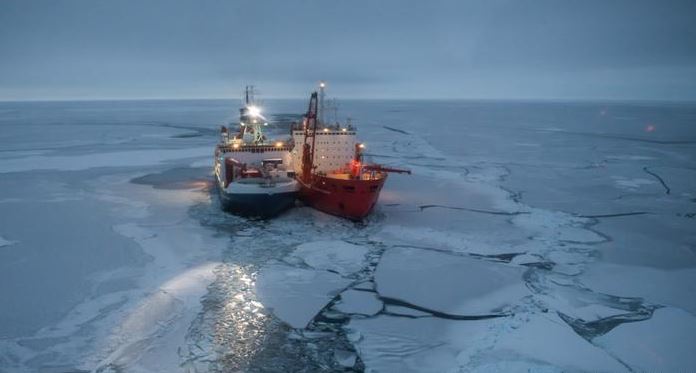Bremen, Germany – The German research vessel Polarstern has found a suitable ice floe to start a year-long drift through the Arctic Ocean, the Alfred Wegener Institute for polar and marine research said on Friday.
Three hundred scientists from 17 countries will take turns working on the icebreaker to investigate the Central Arctic’s climate system. The Polarstern will be frozen to the floe, which measures about 2.5 by 3.5 kilometres.
“It may not be the perfect floe, but it’s the best one in this part of the Arctic, and offers better working conditions than we could have expected after a warm Arctic summer,” said Markus Rex, leader of the MOSAiC expedition, which stands for Multidisciplinary drifting Observatory for the Study of Arctic Climate.
“We’ll have to wait and see if it’s also stable enough to withstand the autumnal storms that are now brewing,” he added. “But we’re prepared for all scenarios.”
Some researchers already set foot on the floe on September 28 to start setting up a research camp.
The Polar Night begins in the area on Friday, meaning that the Sun no longer rises.
The Arctic is the region where global warming has been the most rapid. The Polarstern’s drift is being billed as a scientific first.



